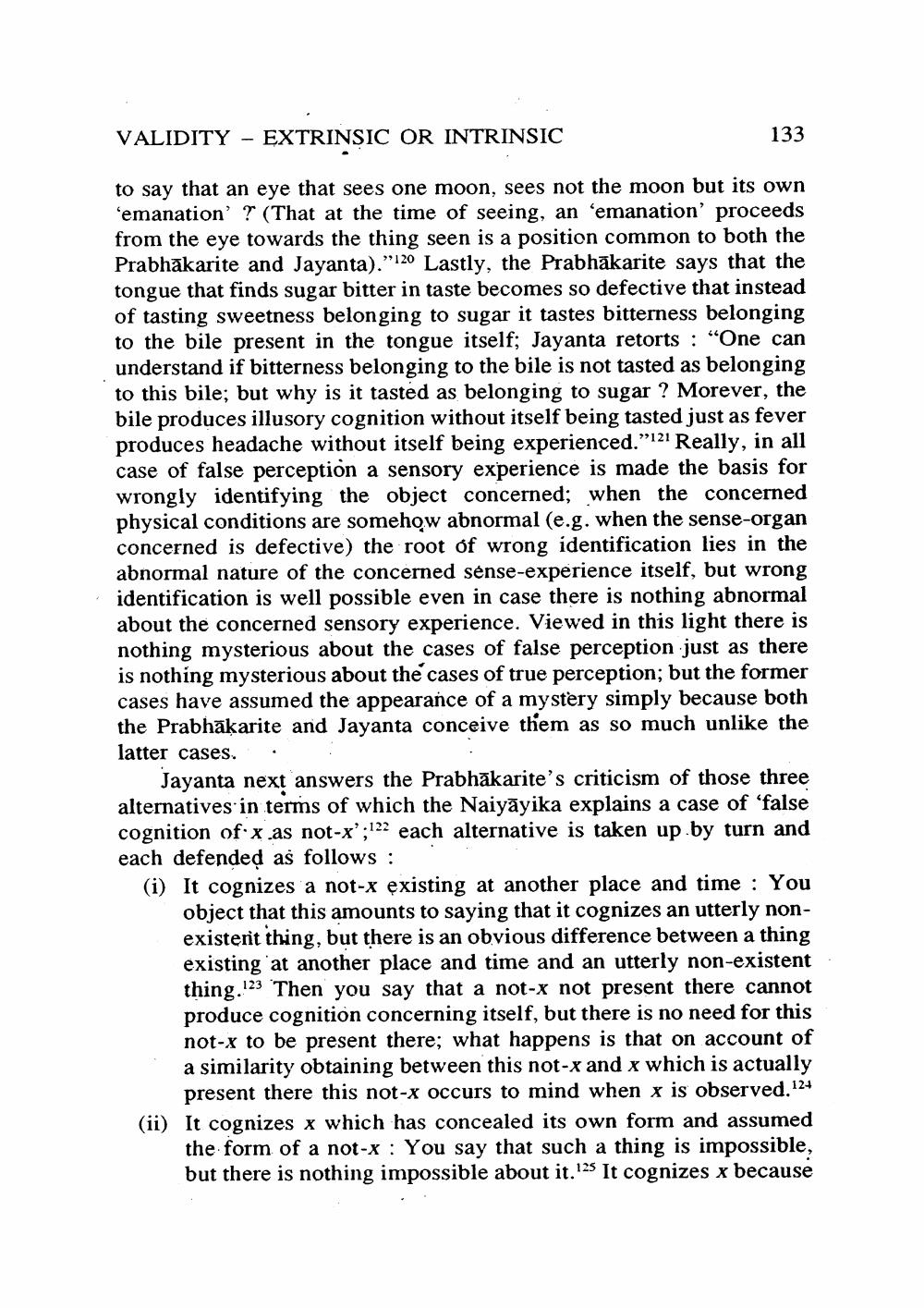________________
VALIDITY - EXTRINSIC OR INTRINSIC
133
to say that an eye that sees one moon, sees not the moon but its own ‘emanation'? (That at the time of seeing, an 'emanation proceeds from the eye towards the thing seen is a position common to both the Prabhākarite and Jayanta)."120 Lastly, the Prabhākarite says that the tongue that finds sugar bitter in taste becomes so defective that instead of tasting sweetness belonging to sugar it tastes bitterness belonging to the bile present in the tongue itself; Jayanta retorts : "One can understand if bitterness belonging to the bile is not tasted as belonging to this bile; but why is it tasted as belonging to sugar ? Morever, the bile produces illusory cognition without itself being tasted just as fever produces headache without itself being experienced.”121 Really, in all case of false perception a sensory experience is made the basis for wrongly identifying the object concerned; when the concerned physical conditions are somehow abnormal (e.g. when the sense-organ concerned is defective) the root of wrong identification lies in the abnormal nature of the concerned sense-experience itself, but wrong identification is well possible even in case there is nothing abnormal about the concerned sensory experience. Viewed in this light there is nothing mysterious about the cases of false perception just as there is nothing mysterious about the cases of true perception; but the former cases have assumed the appearance of a mystery simply because both the Prabhākarite and Jayanta conceive them as so much unlike the latter cases :
Jayanta next answers the Prabhākarite's criticism of those three alternatives in terms of which the Naiyāyika explains a case of 'false cognition of x.as not-x';122 each alternative is taken up by turn and each defended as follows: (i) It cognizes a not-x existing at another place and time : You
object that this amounts to saying that it cognizes an utterly nonexisterit thing, but there is an obvious difference between a thing existing at another place and time and an utterly non-existent thing.123 Then you say that a not-x not present there cannot produce cognition concerning itself, but there is no need for this not-x to be present there; what happens is that on account of a similarity obtaining between this not-x and x which is actually
present there this not-x occurs to mind when x is observed.124 (ii) It cognizes x which has concealed its own form and assumed
the form of a not-x : You say that such a thing is impossible, but there is nothing impossible about it.125 It cognizes x because




